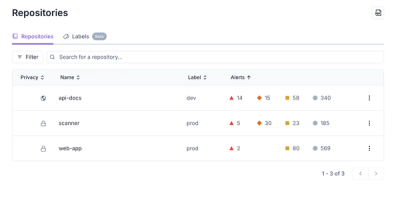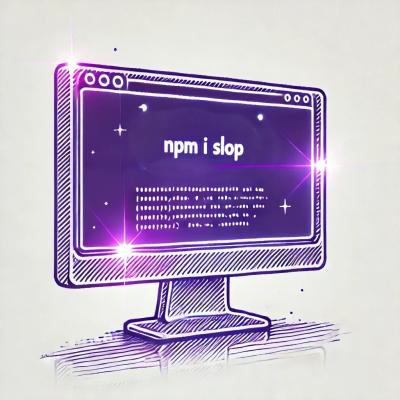
Product
A New Design for GitHub PR Comments
We redesigned our GitHub PR comments to deliver clear, actionable security insights without adding noise to your workflow.
HSFS is the library to interact with the Hopsworks Feature Store. The library makes creating new features, feature groups and training datasets easy.
The library is environment independent and can be used in two modes:
Spark mode: For data engineering jobs that create and write features into the feature store or generate training datasets. It requires a Spark environment such as the one provided in the Hopsworks platform or Databricks. In Spark mode, HSFS provides bindings both for Python and JVM languages.
Python mode: For data science jobs to explore the features available in the feature store, generate training datasets and feed them in a training pipeline. Python mode requires just a Python interpreter and can be used both in Hopsworks from Python Jobs/Jupyter Kernels, Amazon SageMaker or KubeFlow.
The library automatically configures itself based on the environment it is run. However, to connect from an external environment such as Databricks or AWS Sagemaker, additional connection information, such as host and port, is required. For more information about the setup from external environments, see the setup section.
Instantiate a connection and get the project feature store handler
import hsfs
connection = hsfs.connection()
fs = connection.get_feature_store()
Create a new feature group
fg = fs.create_feature_group("rain",
version=1,
description="Rain features",
primary_key=['date', 'location_id'],
online_enabled=True)
fg.save(dataframe)
Upsert new data in to the feature group with time_travel_format="HUDI"".
fg.insert(upsert_df)
Retrieve commit timeline metdata of the feature group with time_travel_format="HUDI"".
fg.commit_details()
"Reading feature group as of specific point in time".
fg = fs.get_feature_group("rain", 1)
fg.read("2020-10-20 07:34:11").show()
Read updates that occurred between specified points in time.
fg = fs.get_feature_group("rain", 1)
fg.read_changes("2020-10-20 07:31:38", "2020-10-20 07:34:11").show()
Join features together
feature_join = rain_fg.select_all()
.join(temperature_fg.select_all(), on=["date", "location_id"])
.join(location_fg.select_all())
feature_join.show(5)
join feature groups that correspond to specific point in time
feature_join = rain_fg.select_all()
.join(temperature_fg.select_all(), on=["date", "location_id"])
.join(location_fg.select_all())
.as_of("2020-10-31")
feature_join.show(5)
join feature groups that correspond to different time
rain_fg_q = rain_fg.select_all().as_of("2020-10-20 07:41:43")
temperature_fg_q = temperature_fg.select_all().as_of("2020-10-20 07:32:33")
location_fg_q = location_fg.select_all().as_of("2020-10-20 07:33:08")
joined_features_q = rain_fg_q.join(temperature_fg_q).join(location_fg_q)
Use the query object to create a training dataset:
td = fs.create_training_dataset("rain_dataset",
version=1,
data_format="tfrecords",
description="A test training dataset saved in TfRecords format",
splits={'train': 0.7, 'test': 0.2, 'validate': 0.1})
td.save(feature_join)
A short introduction to the Scala API:
import com.logicalclocks.hsfs._
val connection = HopsworksConnection.builder().build()
val fs = connection.getFeatureStore();
val attendances_features_fg = fs.getFeatureGroup("games_features", 1);
attendances_features_fg.show(1)
You can find more examples on how to use the library in our hops-examples repository.
Usage data is collected for improving quality of the library. It is turned on by default if the backend is "c.app.hopsworks.ai". To turn it off, use one of the following way:
# use environment variable
import os
os.environ["ENABLE_HOPSWORKS_USAGE"] = "false"
# use `disable_usage_logging`
import hsfs
hsfs.disable_usage_logging()
The source code can be found in python/hsfs/usage.py.
Documentation is available at Hopsworks Feature Store Documentation.
For general questions about the usage of Hopsworks and the Feature Store please open a topic on Hopsworks Community.
Please report any issue using Github issue tracking.
If you would like to contribute to this library, please see the Contribution Guidelines.
FAQs
HSFS: An environment independent client to interact with the Hopsworks Featurestore
We found that hsfs demonstrated a healthy version release cadence and project activity because the last version was released less than a year ago. It has 1 open source maintainer collaborating on the project.
Did you know?

Socket for GitHub automatically highlights issues in each pull request and monitors the health of all your open source dependencies. Discover the contents of your packages and block harmful activity before you install or update your dependencies.

Product
We redesigned our GitHub PR comments to deliver clear, actionable security insights without adding noise to your workflow.

Product
Our redesigned Repositories page adds alert severity, filtering, and tabs for faster triage and clearer insights across all your projects.

Security News
Slopsquatting is a new supply chain threat where AI-assisted code generators recommend hallucinated packages that attackers register and weaponize.